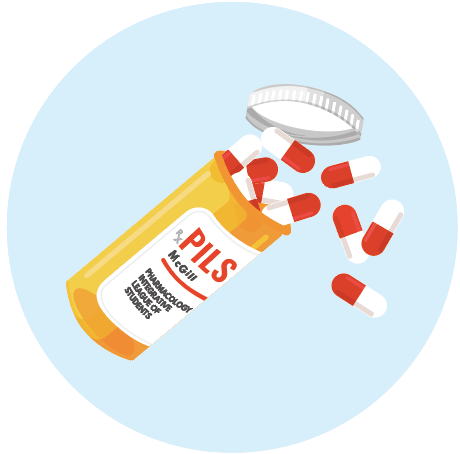| | | | | |
BIOL 200: Molecular Biology | -
Good if you have a strong memory -
The concepts you learn are definitely necessary for your degree and will give you the foundation you need for upper level courses | | -
The course goes by quick! And there's a lot of content! Stay on top of it and don't fall behind! | |
| | -
The first part of the course is Mendelian genetics, which a lot of us have done at least a bit of in high school -
Tamara Western is a great prof and her questions are very fair | -
A lot of content on the final and it tends to be trickier than the midterm | -
-
Don’t cram for the exams because they test your conceptual thinking skills & how much you’ve practiced on your own | -
-
Case study -Assignment 5% -
-
|
CHEM 212: Intro to Organic Chemistry 1 | -
Usually taught by Pavelka, who is an awesome professor and really wants to make sure students are understanding -
Labs are pretty straightforward -
They will often change the weight of your grades to the one that gives most weight to the exam you did best on | -
Takes up a lot of time to do all the practice problems, attend tutorials, etc. | -
Do all the practice problems! -
Reach out to the lab coordinators for help on reports! They often help you out a lot. | |
CHEM 222: Intro to Organic Chemistry 2 | -
First part (IR/MS) is actually pretty useful for other parts of PHARM program -
If you did well in Org1, you will probably be fine in Org2 | -
Problems become MUCH more complicated, especially with the mechanisms | -
PRACTICE, PRACTICE, PRACTICE!! -
Attend tutorials for extra practice! | |
PHAR 200 and 201: Introduction to Pharmacology 1&2 | -
-
Not a class you need to stress about--lectures are 1x a week and the content is interesting -
best way to meet people in your major and network with profs! | -
Lectures aren't recorded! You must go to them in person (the slides won't be much help either) | -
When looking through the lectures, make sure you understand the main points the lecturer wanted to get across and anticipate questions they could ask | -
-
-
-
Both exams have 5/6 long/short answer questions -- each one based on a different lecture |
PHGY 209: Mammalian Physiology 1 | -
Fairly straightforward material, most of it is on CNS -
Some of the professors are better than others | -
Some concepts can be tricky -
Most difficult section is Cook’s | -
Stay on top of the material! -
Memorize everything before your exams! | |
PHGY 210: Mammalian Physiology 2 | -
-
Feels more fast-paced than 209 | -
Some of the content is difficult (Cardiovascular) while some if it is more straightforward (Renal) -
Overall more conceptual than 209 -
| -
Stay on top of the material! -
Memorize everything before your exams! | |
PHGY 212 and 213: Introductory Physiology Lab 1&2 | -
-
Some information can actually be useful (Like the ELISA in the blood lab) | -
Class assessment is not a major part of your grade, so it is hard to know what to study for -
Some labs can be really confusing/frustrating -
-
Sometimes they are really long and you might have a midterm right afterwards | -
Don’t be afraid to ask TAs for help! | |
